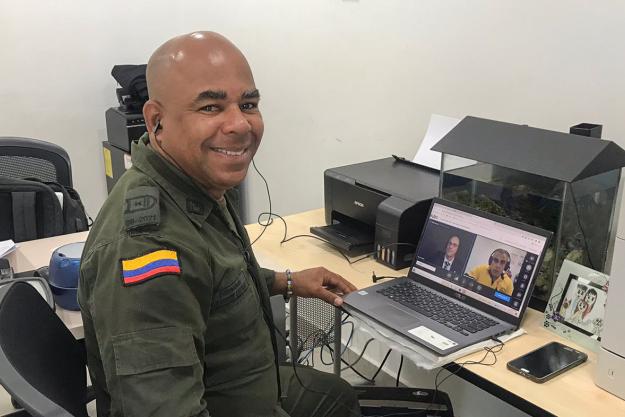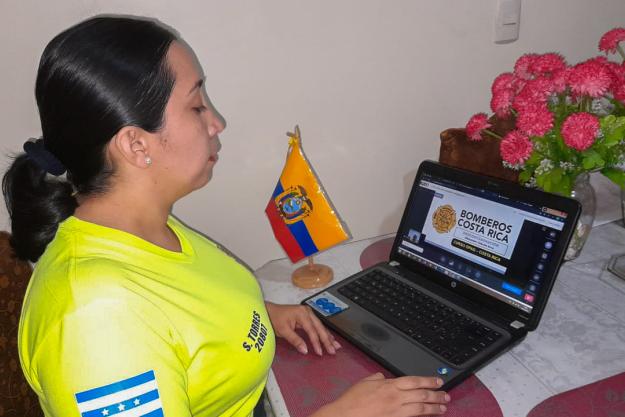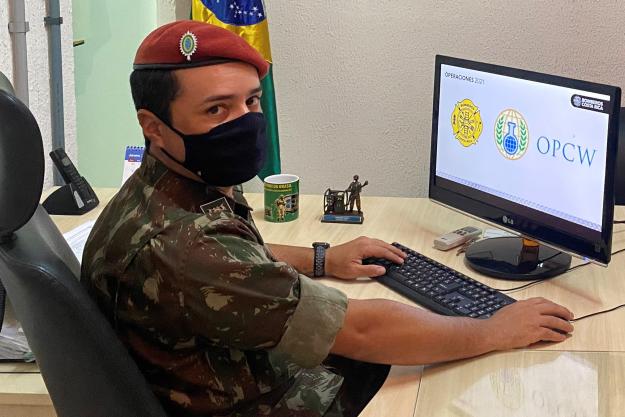
THE HAGUE, Netherlands–20 December 2021–First Responders from Latin America and the Caribbean (GRULAC) learned about the principles of chemical emergency response for incidents involving chemical warfare agents and toxic industrial chemicals during an online course held from 13 to 17 December. The Organisation for the Prohibition of Chemical Weapons (OPCW) conducted the training with the support of the Costa Rica National Authority and the Hazardous Materials Unit of the Costa Rica Fire Brigade.
The Second Lieutenant of the Dangerous Materials Unit of the Costa Rican Fire Department, Mr Alexander Morales Rodriguez, stated: “It is a great recognition and a great responsibility to participate and share our knowledge and experience with the other GRULAC countries. We are convinced that future trainings organised by the OPCW will be of great value to the emergency response organisations throughout Latin America and the Caribbean.”
A Senior Programme Officer from OPCW’s Assistance and Protection Branch remarked: “The long-standing cooperation between the Government of Costa Rica and the OPCW has considerably advanced regional emergency response capacities for assistance and protection when dealing with situations that involve chemical warfare agents and toxic industrial chemicals. This bolsters the capacity of countries in implementing the Chemical Weapons Convention.”

The training was conducted in Spanish and English using a simultaneous interpretation platform, and covered a range of topics including the types and characteristics of chemical warfare agents and dual-use toxic industrial chemicals, incident command, personal protection, sampling, detection and identification, as well as decontamination.
The 67 participants — both military and civilian professionals — came from a variety of response backgrounds, including civil defence, firefighters that use hazmat equipment, and chemical, biological, radiological, and nuclear (CBRN) defence military units. They represented 16 OPCW Member States in the GRULAC region: Argentina, Brazil, Colombia, Costa Rica, Ecuador, El Salvador, Guatemala, Honduras, Jamaica, Mexico, Nicaragua, Panama, Peru, St Kitts and Navis, Trinidad and Tobago and, Uruguay.

Background
As the implementing body for the Chemical Weapons Convention, the OPCW, with its 193 Member States, oversees the global endeavour to permanently eliminate chemical weapons. Since the Convention’s entry into force in 1997, it is the most successful disarmament treaty eliminating an entire class of weapons of mass destruction.
Over 98% of all declared chemical weapon stockpiles have been destroyed under OPCW verification. For its extensive efforts in eliminating chemical weapons, the OPCW received the 2013 Nobel Peace Prize.
More Information
- OPCW: Ensuring Preparedness
- Costa Rica Fire Brigade
- National Authority for the Prohibition of Chemical Weapons of Costa Rica (ANAQ)
- Chemical Weapons Convention: Assistance and Protection Against Chemical Weapons (Article X)
- Photos from the event
- Video: How does OPCW help prepare for and respond to a chemical attack?
